6 bathroom design myths experts say you shouldn't believe
Planning a bathroom refresh? Make sure you're not following made-up design advice first

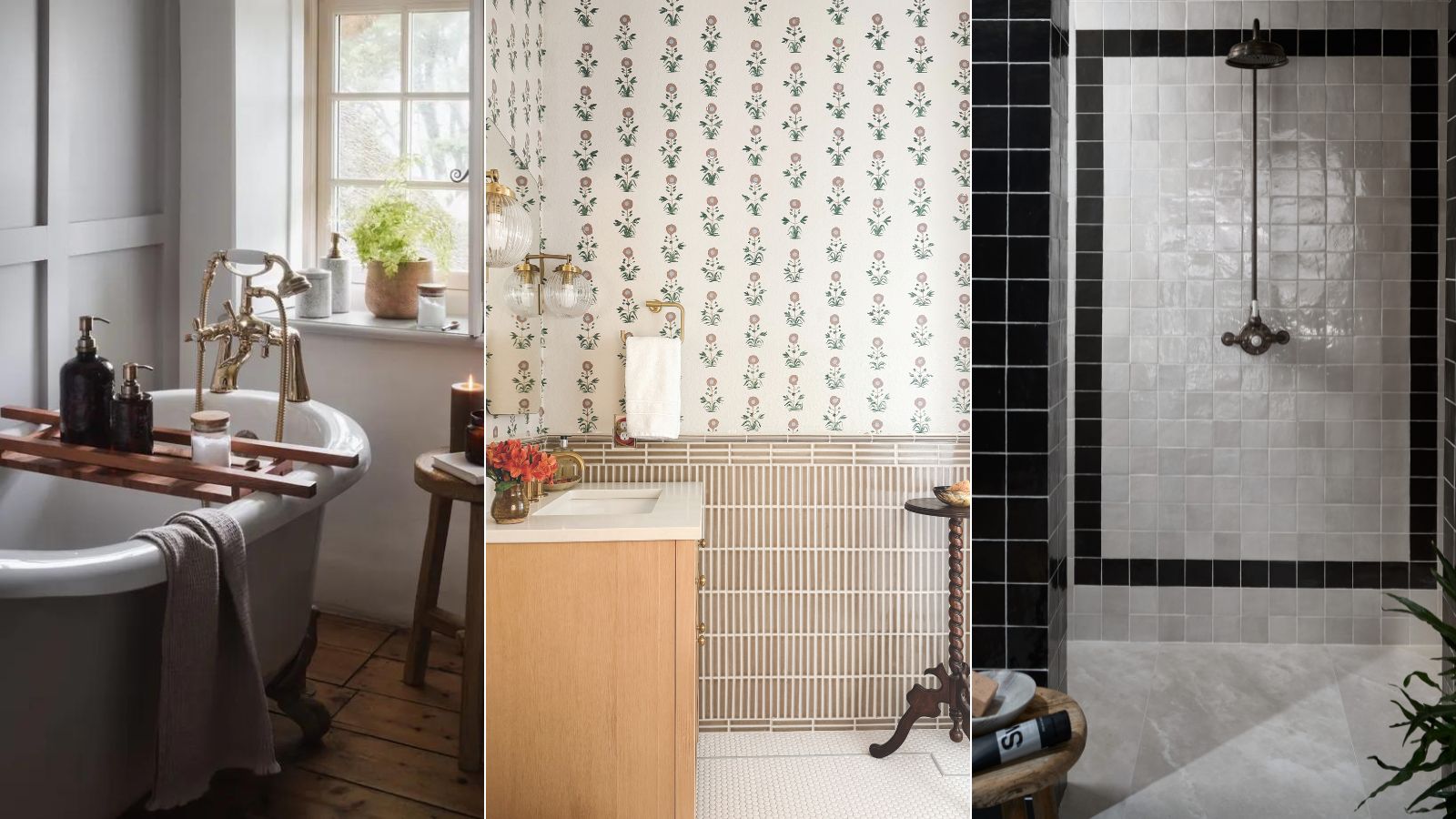
Design expertise in your inbox – from inspiring decorating ideas and beautiful celebrity homes to practical gardening advice and shopping round-ups.
You are now subscribed
Your newsletter sign-up was successful
Want to add more newsletters?

Twice a week
Homes&Gardens
The ultimate interior design resource from the world's leading experts - discover inspiring decorating ideas, color scheming know-how, garden inspiration and shopping expertise.

Once a week
In The Loop from Next In Design
Members of the Next in Design Circle will receive In the Loop, our weekly email filled with trade news, names to know and spotlight moments. Together we’re building a brighter design future.

Twice a week
Cucina
Whether you’re passionate about hosting exquisite dinners, experimenting with culinary trends, or perfecting your kitchen's design with timeless elegance and innovative functionality, this newsletter is here to inspire
As with every room in the home, there are a few bathroom design myths that might be wrongly steering your remodeling decisions. But it turns out, most of them aren't true, and interior designers are keen to dispel them.
Before finalizing design plans, it's always a good idea to source inspiration and bathroom ideas. Whether it's bathroom vanity ideas, tile combinations, or luxury bathtub styling, there's plenty to help guide your own scheme. But before jumping in, make sure you're not accidentally following misguided advice.
But what are these bathroom design myths, and how can you know which are true and which aren't? We've turned to the experts to find out the most common beliefs about designing a bathroom that they say should be debunked.
6 bathroom design myths, debunked by experts
Your bathroom should showcase your interior design style and represent your personality. So, making sure you don't shy away from playful designs simply because you've heard it's not the done thing is key. And with these myths disproved by experts, you don't have to worry about making any dodgy decisions.
1. White is the only way to achieve a clean look
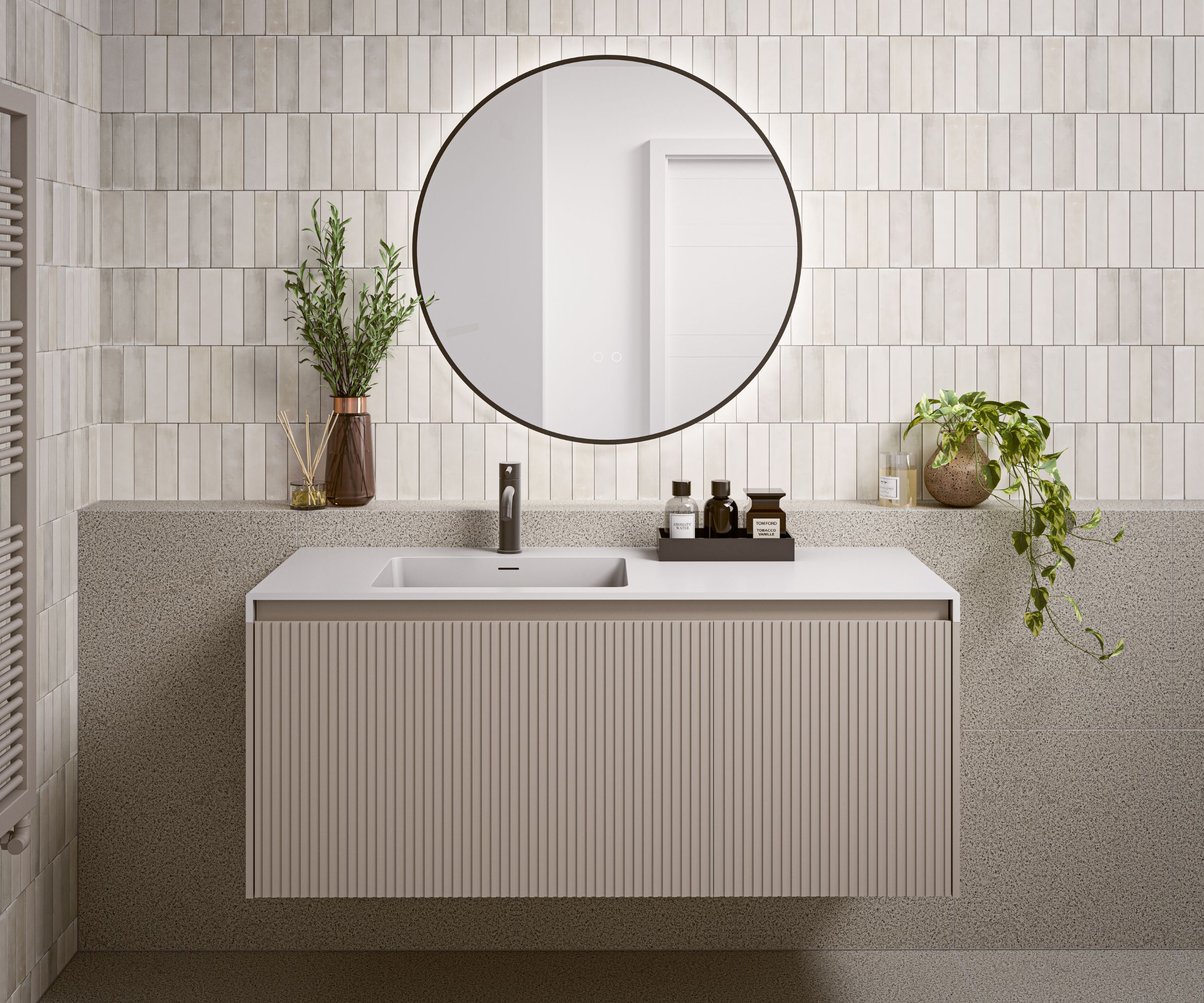
'There is a myth in bathroom design that choosing to go all white – white suite, white tiles, and white walls – it can make the space feel bigger, and provide a clean look especially if you have a small bathroom,' says Sally Bettison, creative manager at Tissino.
While white is a safe color to choose, it's not the only hue that can give the illusion of greater space and a streamlined design. 'Experimenting with color can breathe new life into your space, elevating its visual appeal.'
'Whether through vibrant furniture, bold tiles, or bright basins, the key is to find a color scheme that resonates with your taste and compliments the overall design aesthetic,' she explains. Even a simple switch from white to a warm neutral like beige or brown can have a beautiful effect.
Design expertise in your inbox – from inspiring decorating ideas and beautiful celebrity homes to practical gardening advice and shopping round-ups.
2. Small bathrooms can't fit a bathtub
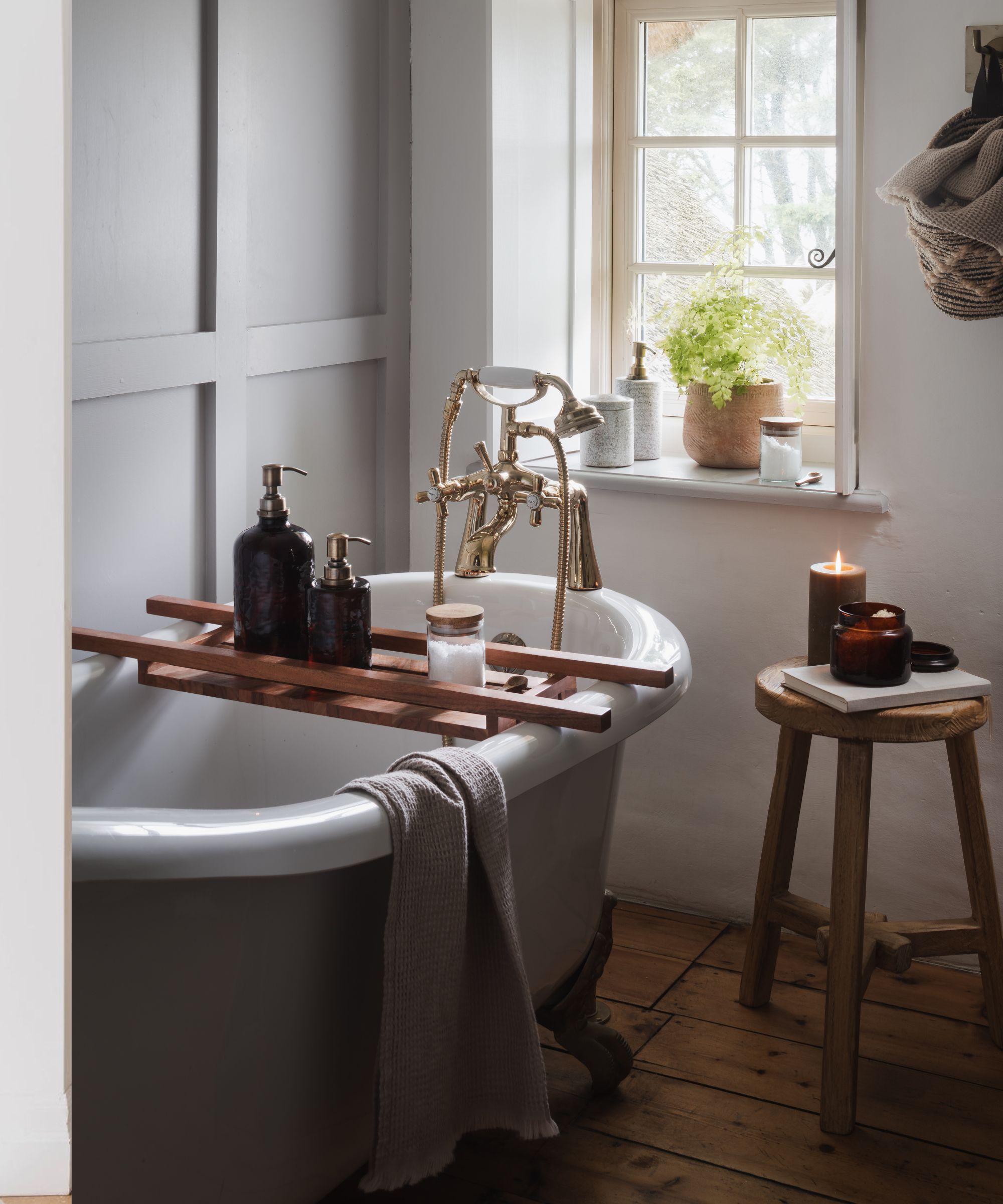
There's a common belief (or myth) that you need a spacious bathroom in order to afford the luxury of a bath, but as bathroom design evolves, even bijou rooms can enjoy a comfortable and stylish bathtub.
Instead of introducing a standard bathtub, designs have evolved and are being created with small bathrooms in mind. 'There are now models that are as small as a 1360mm footprint – typical baths are 1700mm – and so can be used to still provide a luxurious bathing experience,' says Barrie Cutchie, design director at BC Designs.
From built-in designs to free-standing tubs, with the right bathroom layout and a well-selected design, your space can still offer the same sense of relaxation and luxury as a larger scheme.
3. Grout is purely practical
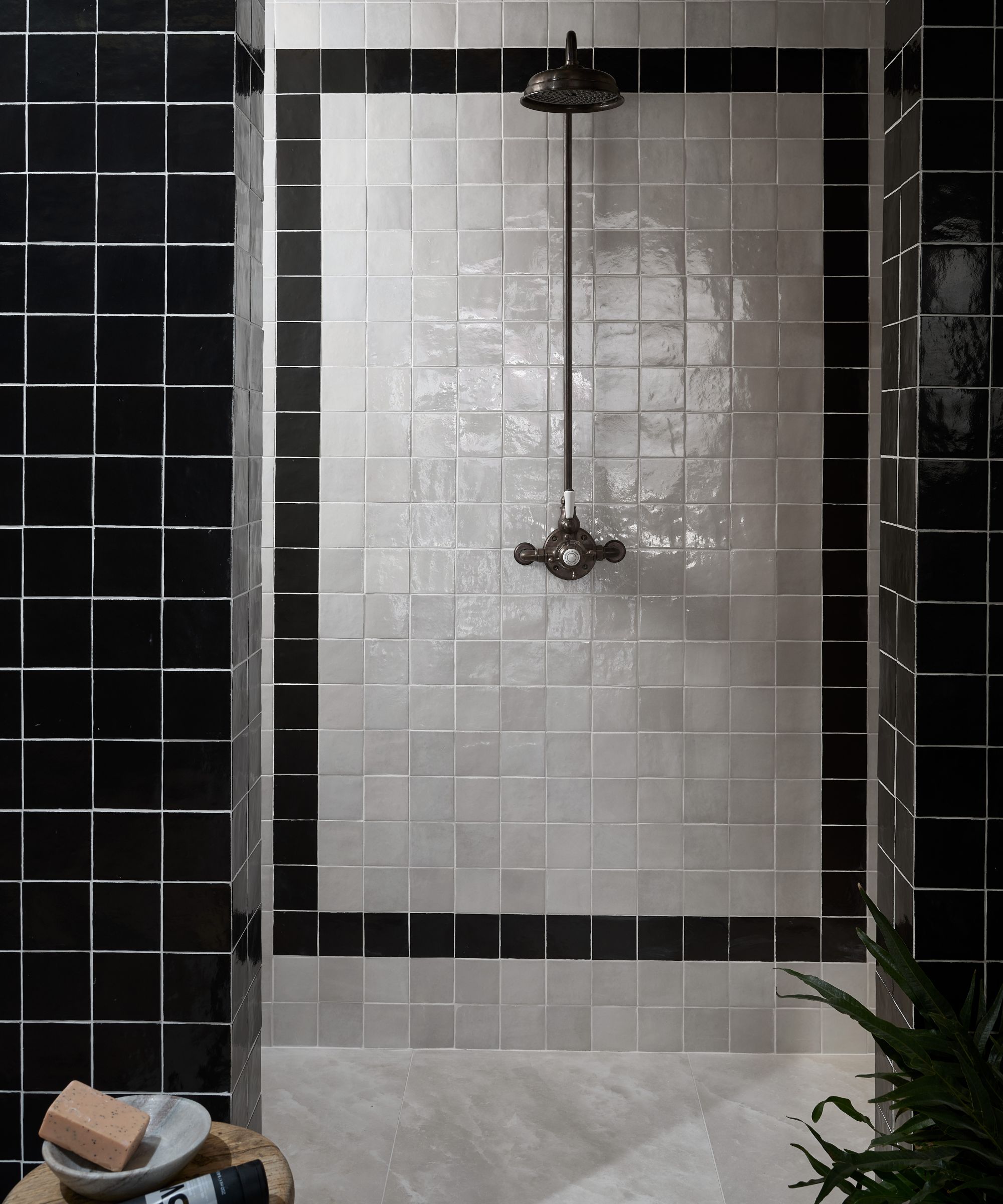
Where there is tile there is grout, but for so many, the latter is seen as something purely functional. 'There is a misconception that grout is just something you need rather than part of the design process, but this is untrue,' says Grazzie Wilson, head of creative at Ca’ Pietra.
'In fact, the task of choosing the color of your grout is more important than you might think. Despite the fact that the space between tiles is usually fairly small, the color of your grout can completely change your bathroom’s overall aesthetic,' she adds.
In this bathroom, white grout has been chosen to create contrast with the black tiles, yet blends in seamlessly with the white tiles. Whichever approach you take, your grout color choice should be just as considered as the tiles themselves.
4. Large tiles are only for spacious bathrooms
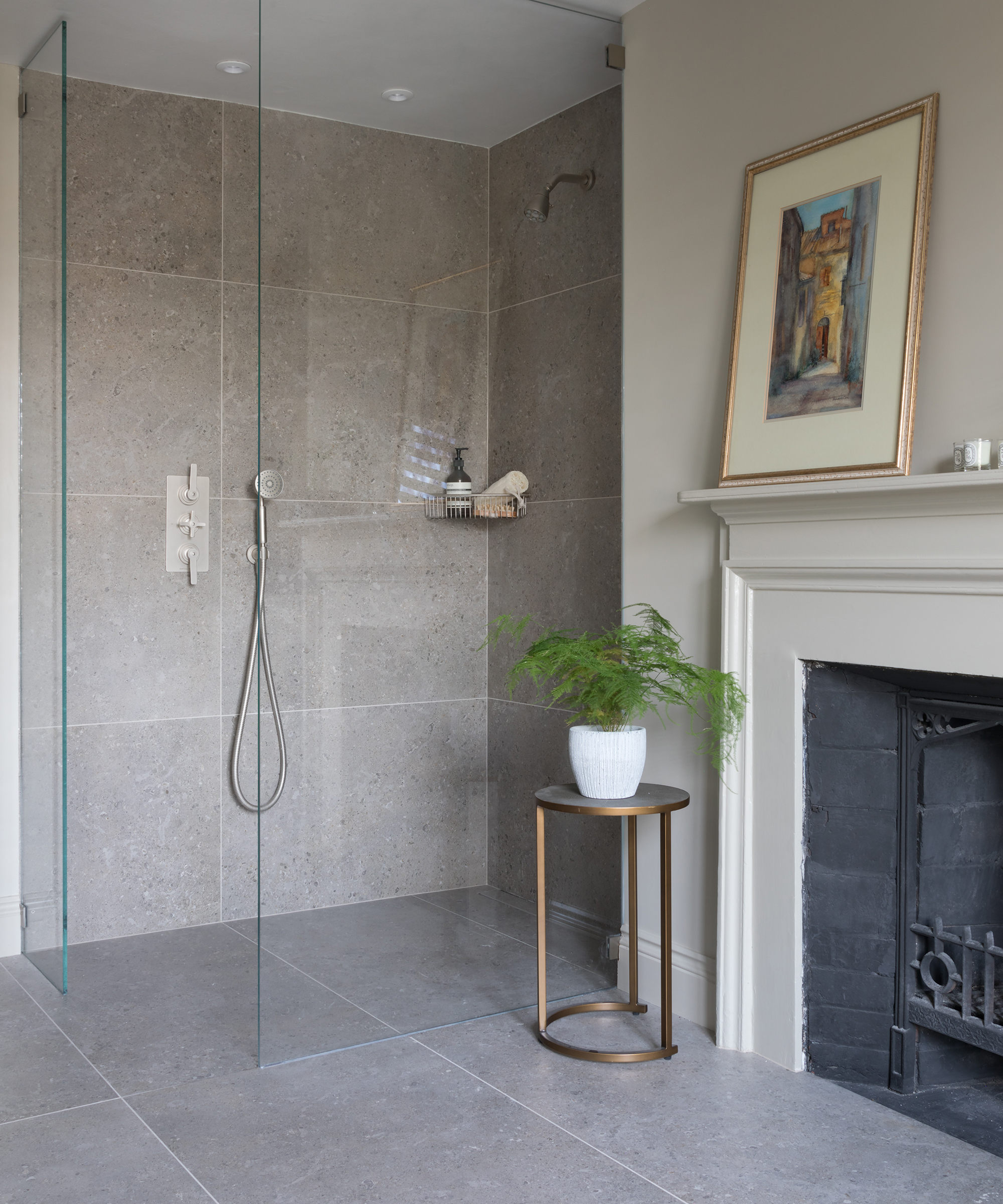
On the topic of bathroom tiles, there are a few bathroom design myths revolving around them, and in this case, it's all about size. 'Homeowners naturally gravitate towards small tiles when they have a small bathroom, thinking this is the best solution,' says Louise Ashdown, head of design at West One Bathrooms.
'However, the assumption that large format tiles aren’t for them is wrong. Large format tiles accentuate the feeling of space simply because they offer an expanse of surface to draw the eye. It’s often said that larger tiles work better in small bathrooms rather than those on the petite side of the scale because bigger versions are less busy and with fewer grout lines to break things up,' she explains.
5. You can't use dark colors
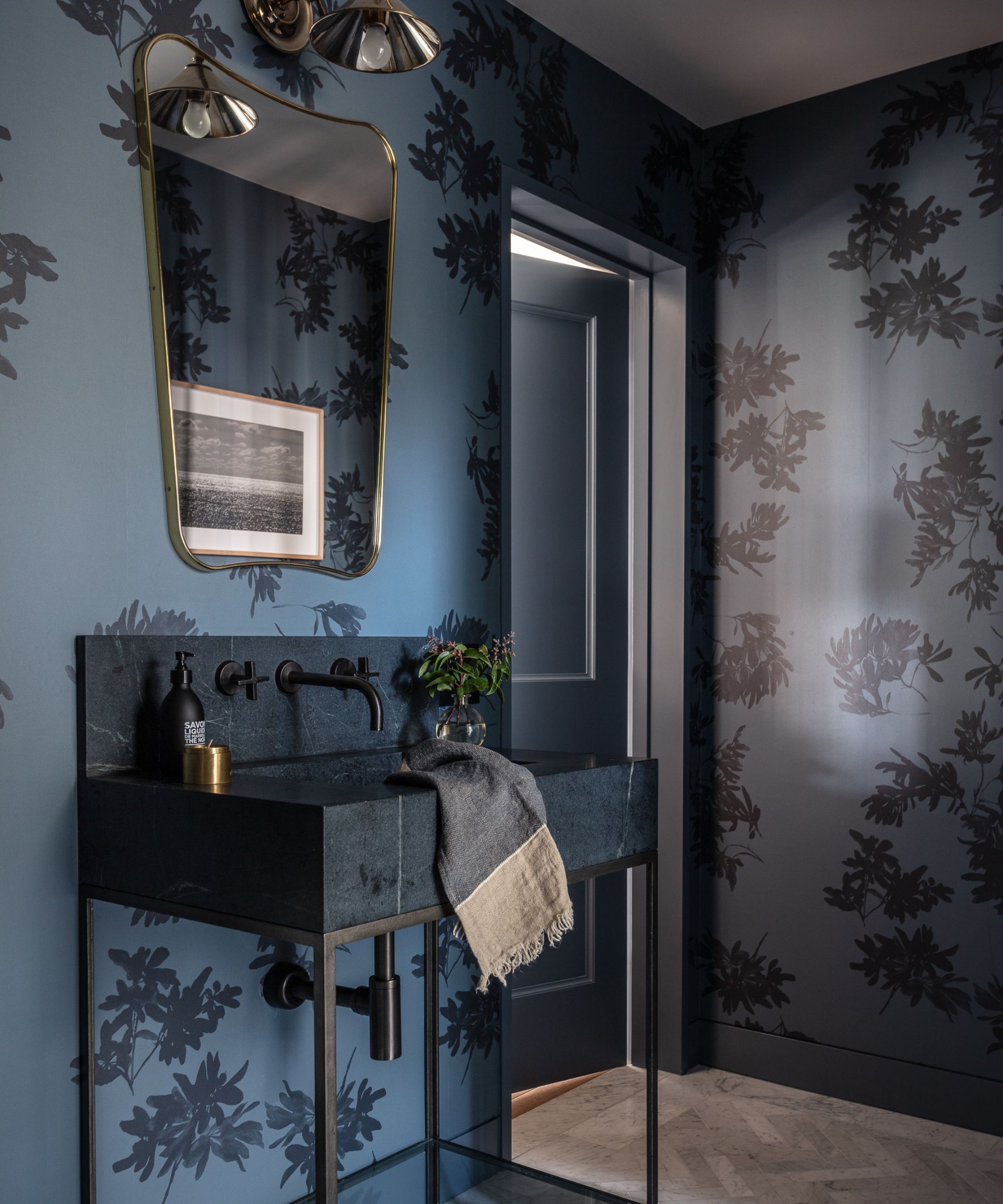
Your bathroom color will set the style and atmosphere of the space. Light, airy neutrals are often favored for a tranquil, spa-like space, but what about moodier hues?
One bathroom design myth that Kali Gibson, of Fireclay Tile, hears all too often is that: 'Dark colors will make a small bathroom feel cramped and closed-in. When used thoughtfully, dark colors create an impactful, intimate atmosphere. Dark tile colors paired with good lighting and reflective surfaces can enhance a space.'
Whatever the size of your bathroom, introducing deeper colors can have a wonderfully luxurious effect. Imagine a shower nook encased in dark tiles or a color-drenched scheme that highlights statement brassware.
6. You should stick to one tile pattern
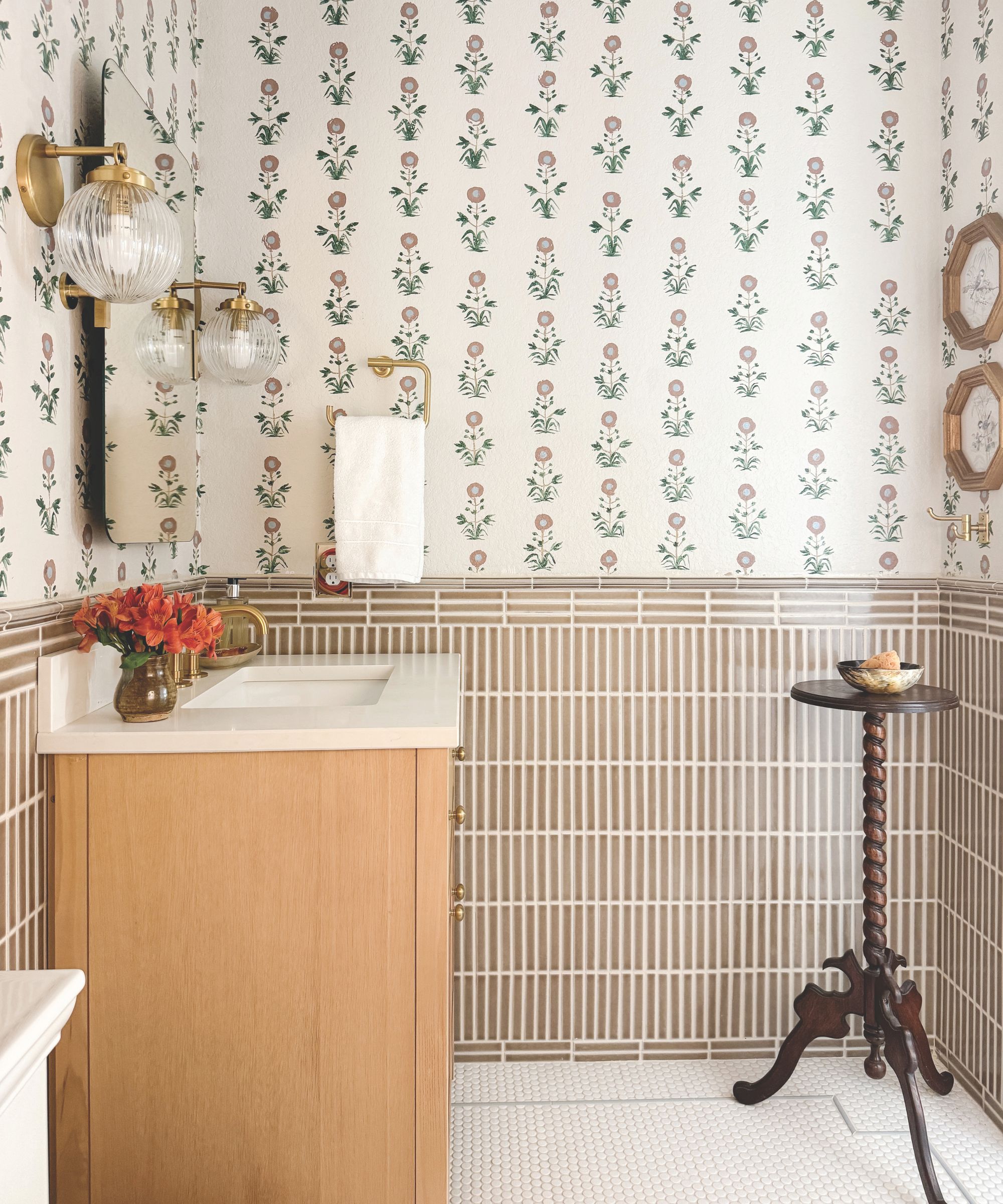
When you're planning your tile design, you might be considering whether to go with squares or rectangles, vertical or horizontal, staggered or linear. But who says you can only pick one?
'Using the same tile pattern or size throughout the bathroom is often considered safer and less visually distracting,' says Kali, but there is an argument for introducing a more varied tile design.
'Mixing tile sizes, shapes, and patterns can add visual interest and break up the monotony. For example, pairing classic subway tiles with a dynamic shape like a hexagon can add dimension to the space,' she explains.
Whether tile 'rules' have been ruining your ideas or small space dilemmas are halting your remodel, these bathroom design myths that we can say are untrue will make it much easier to complete your project.

I’ve worked in the interiors magazine industry for the past five years and joined Homes & Gardens at the beginning of 2024 as the Kitchens & Bathrooms editor. While I love every part of interior design, kitchens and bathrooms are some of the most exciting to design, conceptualize, and write about. There are so many trends, materials, colors, and playful decor elements to explore and experiment with.